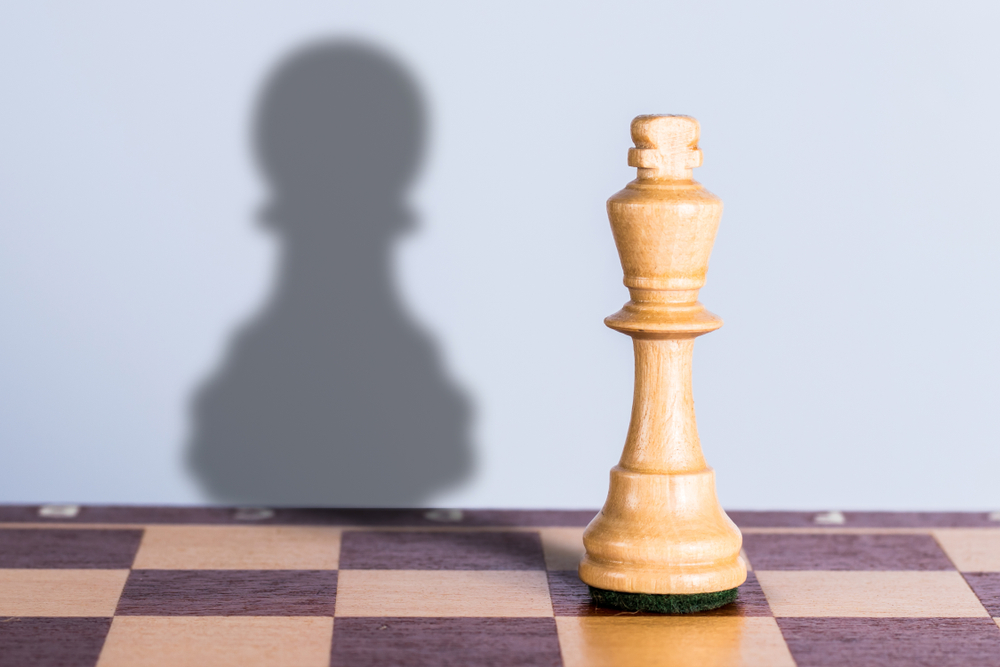People Can Overestimate Their Abilities, Something Known as the Dunning-Kruger Effect
Posted on Categories Discover Magazine

Author Tom Vanderbilt politely congratulated his opponent after losing to him during a chess tournament. The victor was an eight-year-old boy who sipped chocolate milk from a little box with a straw during the round. Vanderbilt, then approaching age 50, humbly updated the tournament director with the results.
Learning chess was one of the experiences Vanderbilt chronicled in his book Beginners: The Joy and Transformative Power of Lifelong Learning (he also learned juggling, singing, and surfing). Chess was also the only one of his target skills that provided a sense of how he compared to others. Tournament stats and ratings meant Vanderbilt knew his general skill level.
However, most life experiences don’t provide chess-tournament-type feedback. Psychologists have found that when people evaluate themselves, those who perform the worst are often the most overconfident in their abilities.
What is the Dunning-Kruger Effect?
In the late 1990s, psychologist David Dunning was a professor at Cornell University when he noticed that students who wanted to discuss a poor test grade seemed surprised by their performance. Often students felt confident going into the exam. Other times, they missed questions they thought they answered correctly.
“I thought people must have some insight that they were doing badly,” says Dunning, now a professor at the University of Michigan-Ann Arbor.
Dunning teamed up with a graduate student, Justin Kruger, to measure self-confidence and performance insight. The results led to what is now known as the Dunning-Kruger effect.
Read More: Where Do Thoughts Occur?
The Dunning-Kruger Effect and Self-Confidence
The Dunning-Kruger effect holds that people who are not strong in a particular area tend to be unaware of their shortcomings. When asked to consider their abilities, they are apt to rate themselves higher than they deserve.
The Dunning-Kruger effect is a cognitive bias in which a person isn’t aware of what they lack in terms of knowledge or skill. Without these deficits haunting them, they feel better about their abilities than they should.
The psychology students who bombed their tests, for example, felt more confident going into the exam and didn’t realize the material they failed to master. Or, they felt confident they knew everything that would be covered on the test, so they skimped on studying. Not knowing what they didn’t know meant they went into the test feeling overly confident.
Read More: How Emotionally Intelligent Are You?
Confidence Check
In a 1999 study in the Journal of Personality and Social Psychology, Dunning and Kruger detailed four experiments in which they measured participants’ ability in a given task as well as their sense of how they compared to others who completed the same task.
Each of the four experiments required participants to demonstrate their ability in a particular area. Two studies involved logical reasoning, one addressed grammar, and one measured humor. Participants had to rate their own abilities in the subject area and how they felt they compared to the others in the study. Lastly, they had to assess how many items they felt they answered correctly.
In one of the logical reasoning experiments, for example, Cornell undergraduates (n=45) had to solve 20 logic questions taken from the Law School Admissions Test (LSAT). In the humor experiment, Cornell undergraduates (n=65) completed a questionnaire rating the quality of 30 jokes taken from humor books. (Professional comedians had also rated the jokes and determined a baseline for which were funny or flat.)
Read More: 10 Science-Backed Ways to Boost Your Brain
Self-Comparison and Confidence
Across the four experiments, Dunning and Kruger found that people who performed in the bottom quartile tended to overestimate both their abilities and their performance. They thought they answered more questions correctly than they actually did, and they thought they performed better in comparison to their peers than they actually did.
When it came to comparing themselves, the lowest performers were the most unaware of how they stacked up against others. People in the 12th percentile ranked themselves in the 62nd.
“They weren’t as confident as the top performers, but they were wildly overconfident compared to how they really did,” Dunning said.
Read More: How Naps Improve Memory Performance
Avoiding the Dunning-Kruger effect
It’s easy to look at the 1999 study and assume the poorly performing students were somehow inept. However, Dunning says that ignorance is a part of life and something that everyone experiences at some point.
“It’s all of us sooner than later,” Dunning says. “We don’t know when we’re stepping into our little pool of stupidity.”
People are often unaware of their own deficiencies, particularly when they don’t understand a topic well enough to understand what they are missing. As a result, Dunning advises that people seek feedback.
“The mistakes we make are invisible to us, but they might not be invisible to others. It’s always good to check notes with other people,” Dunning says.
Checking notes with others is particularly important when making a big decision for the first time. When buying a house for the first time, for example, Dunning says there is so much to learn. Between the bidding and lending process, a person might think they have it all figured out when they could actually benefit by asking others for feedback.
“You don’t want to do this all the time, you’ll get paralyzed,” Dunning says. “But if you’re stepping into something new for the first time, you have to ask yourself, ‘What don’t I know?’”
Read More: Do IQ Tests Actually Measure Intelligence?